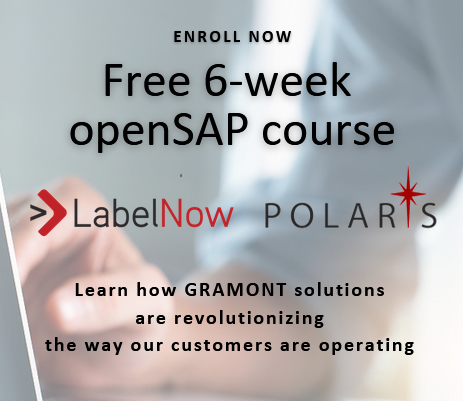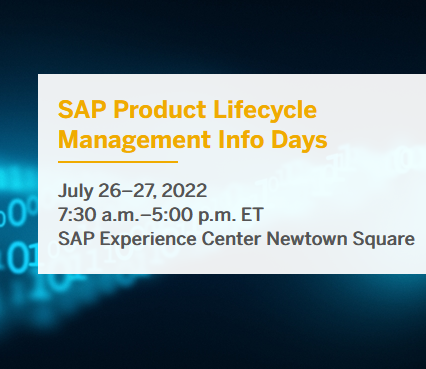BLOG: The Secret Sauce To Transformation
Unleashing Organizational Change Management for Business Growth
by Vivek Joshi, Gramont Consulting Change Manager - Feb 2024
Change is the only constant in today’s dynamic business environment. Organizations, regardless of their size or sector, face the inevitable need to adapt and evolve to stay relevant and competitive. However, introducing change within an organization, be it a new strategy, technology implementation, or restructuring, can be a complex and challenging endeavor. This is where the importance of Organizational Change Management, or OCM for short, comes into play.
The essence of OCM lies not just in altering systems or processes, but in its holistic approach that considers the organization’s most valuable asset – its people. By acknowledging the human element, OCM equips businesses with the strategies and tools necessary to minimize resistance, foster engagement, and cultivate a culture resilient to the ebb and flow of change.
Why Organizational Change Management is Key in Business Today
In the last two decades, we’ve experienced more technological advancement than in the previous two centuries combined. Staying competitive in such an environment requires not only adopting innovative technologies but also reshaping organizations regularly.
The Pace of Change: Things that were considered revolutionary just a few years ago are now commonplace. Companies must keep up with this pace or risk becoming irrelevant.
Competitive Advantage: Businesses that manage change effectively are more agile and can respond to market demands swiftly, providing a significant edge over competitors.
Employee Engagement: The heart of any business is its people. OCM places a strong focus on engaging employees in the change process, thus cultivating a workforce that is motivated and resistant to turnover.
Risk Management: Without proper change management, businesses may encounter increased resistance and risk to operations. OCM helps to anticipate and mitigate these risks, ensuring a smoother transition.
Understanding Organizational Change Management
OCM might seem like just another buzzword, but it encapsulates a lot. It’s a structured approach that manages the human, material, and financial transitions needed to reach desired outcomes.
Scope: These changes can range from simple process adjustments and ERP rollouts to major shifts in policy or strategy needed for transformative results.
Objective: The end goal is to implement changes in such a manner that it becomes a part of organizational fabric with minimum resistance and high buy-in, leading to effective and efficient operational transformation.
Key Components of Organizational Change Management
An effective OCM Program is multi-dimensional, involving layers of coordinated effort. Here are the components that should not be overlooked:
Leadership Engagement: Guidance from the top is non-negotiable in successful change. Leadership must be committed not only in words but in actions.
Communication Strategy: Transparency is key. A well-planned communication strategy helps demystify the change process for those involved, addressing their concerns proactively.
Stakeholder Involvement: These are the individuals who can make or break your change initiative. Their early involvement can supply invaluable insights and help foster allies within the organization.
Training and Support: Providing the necessary support systems and training to employees eases the transition. It also equips them with the skills needed to embrace new ways of working.
Tracking and Feedback Systems: What gets measured gets managed. Systems that track progress and garner feedback are crucial for identifying areas of improvement and making adjustments.
Organizational Change Management Essentials for the Future
With an eye toward the future, certain aspects of OCM are becoming increasingly important:
Agility: Embracing a mindset that is open to rapid pivots is essential. This means designing processes and structures conducive to change.
Employee Development: Increasingly, businesses must invest in continuous learning for their employees. An upskilled workforce is better equipped to handle the changes ahead.
Innovation Emphasis: Creating a culture where questioning and innovating are part of the daily routine can ensure sustained success.
Integration of Technology: Tools like AI and machine learning can offer predictive insights, automate routine tasks, and facilitate better decision-making during change initiatives.
Sustainability: Every change should align with sustainable practices—socially, economically, and environmentally. Sustainability is fast becoming a core element of strategic change efforts.
Gramont’s Charge To You: Embrace Change
As we stand at the threshold of a new era where change is inevitable, embracing and mastering the art of Organizational Change Management is not just a tactical maneuver, but a strategic imperative. It's crucial that we look beyond the immediate and foster an environment where change is not only anticipated but also holistically integrated into our corporate ethos. Try not to view change as a hurdle but as an opportunity to redefine goals and achieve new pinnacles of success.
With a focus on implementing PLM, MDG & EHS, Gramont, as a world-leading SAP Consulting company, brings a wealth of experience to the table. We will work with you to understand your unique business requirements and customize an OCM solution that fits your needs. From assessing your current processes to designing a comprehensive change management plan, we’ll guide and support you every step of the way. Our resolve to adeptly manage organizational change is a distinguishing feature that sets us apart in the ever-evolving business landscape. By adhering to OCM principles, we help our clients not only survive, but also capitalize on change to ensure longevity in fast-moving, competitive industries.
Don’t let change overwhelm you – let us help you navigate the complexities and set your business up for success. Contact us for more information and schedule a consultation.































